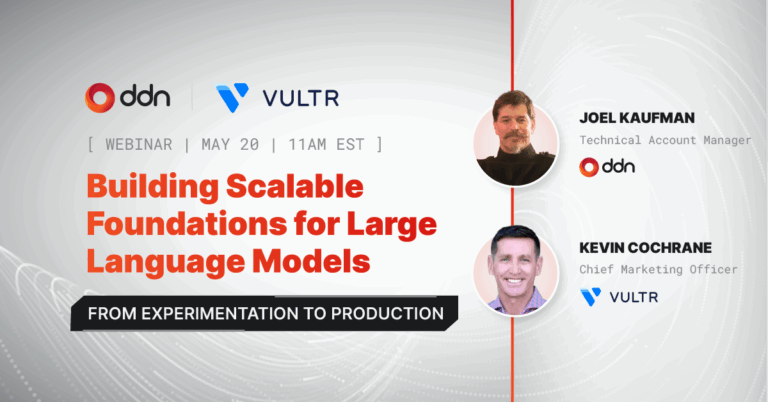In the hedge fund world, a fraction of a second can mean all the difference. So fund managers are constantly looking for ways to make informed trades faster. That’s true whether they’re doing ultra-high-frequency trading—pursuing billions of relatively low-value trades—or taking on greater risk by trading thousands or millions of assets at high value.
In this ultra-competitive and fast-paced world, hedge funds are increasingly turning to complex and high-powered algorithms to help them assess opportunity and boost fund performance.
The data suggests it’s working. Last year, Texas A&M University teamed up with the University of Vaasa in Finland to take a deeper look at 15 years of hedge fund data, spanning 2006 to 2015. The researchers split up hedge funds into four categories based on how much automation played into decision making.
Pulling on a sample of 826 hedge funds, the study found that the group of hedge funds with the highest level of automation also performed the best, with an average monthly return between .74% and .79%. Meanwhile, the least-automated category produced monthly returns of .23% to .28% on average. All in all, the researchers concluded that “automation plays an important role in the profitability of the hedge fund industry.”
Other researchers have found something similar. The market intelligence firm Cerulli Associates studied the effects of artificial intelligence on Europe-based hedge funds from 2016 to 2019. It found that the cumulative return of AI-led funds came out nearly three times higher than the hedge fund ecosystem at large, returning 33.9% compared to 12.1%.
How Hedge Funds Are Using AI
Algorithms and trading have a well-documented past—and one that plays a significant role in hedge fund success. But the recent wave of AI and machine learning-infused trading goes a step further.
By developing complex software programs, hedge funds can analyze much more than dollars and cents. They envelop a massive amount of data and look for patterns that lead to returns. That data may include everything from SEC filings to quotes from CEOs or other executives, or even satellite shots of parking lots. These complex algorithms dive deep into default premiums, yield curve slopes, and other financial data, and then weigh those factors against patterns found in additional data sources. They’re more comprehensive than any one human or team of humans could handle.
With machine learning, these programs can adjust and improve over time, differentiating themselves from the traditional models of Wall Street “quants.”
Which explains why AI-fueled investing is becoming more and more mainstream, Bloomberg says:
“Hedge fund giant Bridgewater Associates and Man Group Plc as well as Highbridge Capital Management and Simplex Asset Management in Japan are among firms developing machine learning or investing in it. Renaissance Technologies and Two Sigma have used the techniques for a long time. In a potential source of capital for AI funds and signs that the strategy is slowly becoming mainstream, JPMorgan Chase & Co.’s asset management arm is planning to invest in emerging and established machine-learning statistical-arbitrage hedge funds.”
The Future of AI and Hedge Funds
Although AI and machine learning are already popular tools among hedge fund managers, its use appears to be further on the rise. A survey of hedge funds in 2018 found that over half of respondents—56%—used AI to inform investment decisions. That was nearly triple the year prior, BNY Mellon says.
And the transition is not “just a battle of the old guard and the new,” according to Wired. Storied fund managers have invested in the tech. “These people who I considered old school really understood what I was getting at,” Numerai founder Richard Craib told the magazine. Craib’s San Francisco-based hedge fund Numerai used thousands of anonymous data scientists to build a machine learning model. “I thought I was going to be ahead of my time,” he says.
Meanwhile, evidence of AI’s effectiveness continues to mount. Research not only suggests greater returns for AI funds, but also lower volatility. That’s according to the research firm Preqin, which supplied the data for the Texas A&M and Vaasa study. From Preqin:
“Over a three-year horizon, AI funds have shown 3.20% volatility and a Sharpe ratio of 1.96, while all hedge funds have posted volatility of 3.87% and a Sharpe ratio of 1.40. The greater a portfolio’s Sharpe ratio, the better its risk-adjusted performance. The higher Sharpe ratio, coupled with the lower volatility over a three-year period, suggests that funds utilizing AI technology have indeed been the better investment over the past three years.”
How Hedge Funds Should Prepare for Further AI Growth
As the data shows, hedge funds who haven’t already embraced artificial intelligence should consider it in 2023.
These technologies are not inexpensive to develop—not only do the algorithms take a heavy resource and cash commitment to stand up, but they can take some trial and error to ensure you’re not working with an algorithm that’s ultimately ineffective. But hedge funds are already learning how worthwhile the investment really is.
Funds that are just beginning to explore AI should start by getting a firm grasp on the risk and reward, while also exploring how they can improve their data infrastructure to prepare for AI implementation.
AI and machine learning models are only as strong as the data that backs them. When hedge funds fail to pull in good data, they’re sure to end up with ineffective predictions and inefficiencies. Data needs to be secure, complete, and accessible.
Funds that already manage massive troves of data may need to leverage innovation to pursue personalized development approaches that create the data foundation for their AI. While extremely valuable insights often hide within layers of complex data, large data stacks can become cumbersome and difficult to manage. Starting with establishing a strong data foundation ensures hedge funds are on solid footing as they innovate.
How DDN Can Help
DDN works with financial services organizations of all kinds to shore up their data infrastructure and prepare them for growth. Artificial intelligence applications are data-intensive; DDN can support and innovate alongside hedge funds to enable AI insights.
At DDN, we are working closely with leading financial institutions to make data-driven decisions to transform the way they innovate and drive competitive advantage, using high-performance AI storage to speed up time-to-discovery and develop new ways to trade, including applications such as algorithmic trading, time-series analysis, risk management and compliance.
DDN provides support for mission-critical applications that require 24-hour operations. Our technology helps organizations home in on the specific challenges of their industry so that they can create solutions that match their business goals. We take a consultative approach, matching our expertise with yours.
DDN’s AI Storage Solutions are proven to be the most effective and performant solutions for data intensive financial workflows. DDN’s unique parallel storage architecture improves on traditional approaches to simultaneously reduce complexity, drive down cost and improve performance as data sets grow.
Learn more about how DDN can serve your financial services organization here.



